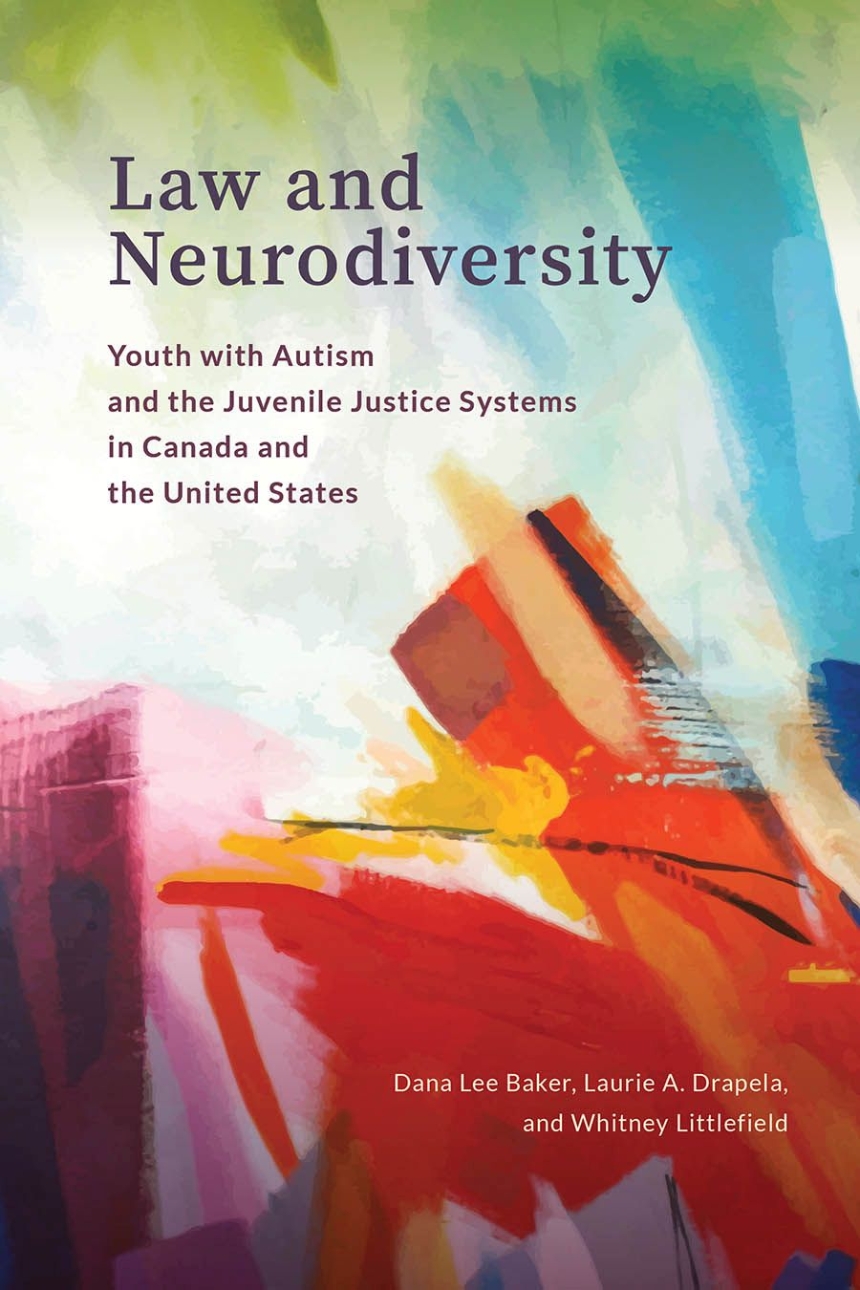University of British Columbia Press
Law and Neurodiversity
Youth with Autism and the Juvenile Justice Systems in Canada and the United States
9780774861373
Distributed for University of British Columbia Press
Law and Neurodiversity
Youth with Autism and the Juvenile Justice Systems in Canada and the United States
As social perceptions of diversity become more nuanced, awareness of the prevalence of autism has grown. But how do we accommodate natural human neurodiversity within the juvenile justice system? And what are the consequences for young people?
Law and Neurodiversity offers invaluable guidance on how autism research can inform and improve juvenile justice policies in Canada and the United States. Both countries rely on decentralized systems of governance to craft and implement law and policy, but their treatment of detained youth with autism differs substantively. This perceptive book examines the history of institutionalization, the evolution of disability rights, and advances in juvenile justice that explicitly incorporate considerations of neurological difference into court practice. In Canada, the diversion of delinquent autistic youth away from formal processing has fostered community-based strategies under state authority. US policies rely more heavily on formal responses, often employing detention in juvenile custody facilities. These differing approaches profoundly affect how crucial services such as education are delivered to youth on the autism spectrum. Building on a rigorous exploration of how assessment tools, rehabilitation programs, and community re-entry plans differ between the two countries, Law and Neurodiversity offers a much-needed comparative analysis of autism and juvenile justice policies on both sides of the forty-ninth parallel.
Law and Neurodiversity offers invaluable guidance on how autism research can inform and improve juvenile justice policies in Canada and the United States. Both countries rely on decentralized systems of governance to craft and implement law and policy, but their treatment of detained youth with autism differs substantively. This perceptive book examines the history of institutionalization, the evolution of disability rights, and advances in juvenile justice that explicitly incorporate considerations of neurological difference into court practice. In Canada, the diversion of delinquent autistic youth away from formal processing has fostered community-based strategies under state authority. US policies rely more heavily on formal responses, often employing detention in juvenile custody facilities. These differing approaches profoundly affect how crucial services such as education are delivered to youth on the autism spectrum. Building on a rigorous exploration of how assessment tools, rehabilitation programs, and community re-entry plans differ between the two countries, Law and Neurodiversity offers a much-needed comparative analysis of autism and juvenile justice policies on both sides of the forty-ninth parallel.
246 pages | 6 x 9 | © 2020
Reviews
Table of Contents
1 Autism, Disability Policy, and the Juvenile Justice System in Canada and the United States
2 Autism, Delinquency, and Juvenile Rights
3 Autism on Trial
4 This Kid is Different: Health Care Management and Developing Empathy
5 Zero Tolerance for Difference: The Role of the Education System in Defining Delinquency
6 The Social World of Juvenile Custody
7 Transitioning Beyond Juvenile Justice Systems
8 Looking Forward: Conclusions, Recommendations, and Next Steps
Glossary; Notes; Works Cited; Index
2 Autism, Delinquency, and Juvenile Rights
3 Autism on Trial
4 This Kid is Different: Health Care Management and Developing Empathy
5 Zero Tolerance for Difference: The Role of the Education System in Defining Delinquency
6 The Social World of Juvenile Custody
7 Transitioning Beyond Juvenile Justice Systems
8 Looking Forward: Conclusions, Recommendations, and Next Steps
Glossary; Notes; Works Cited; Index

